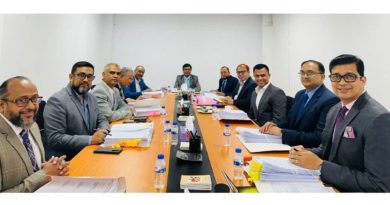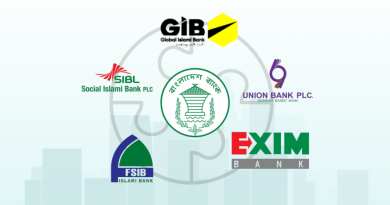Industry leaders have urged the government to scrap the Bangladesh Flag Vessel (Protection) Act 2019, saying the law has become a major obstacle to the growth of the oceangoing shipping and shipbuilding sectors.
Speaking at a seminar titled “Investment Potentials in the Ocean Going Vessel Industry,” shipping entrepreneurs said the law—meant to reserve 50% of government cargos for Bangladeshi-flagged vessels—has instead benefited only state-run carriers, leaving private operators at a disadvantage.
“When the law was enacted, Bangladesh Shipping Corporation (BSC) had only three ships. Today, private operators own over 100 vessels but get no such privileges,” said Azam J Chowdhury, president of the Bangladesh Ocean Going Ship Owners Association (BOGSOA). He also pointed to bureaucratic bottlenecks, such as requiring ministerial approval to sell ships, as barriers to expansion.
Chowdhury further warned that global climate regulations will soon reshape the industry. “By 2029, the International Maritime Organization (IMO) will require all ships to use zero-emission fuels. We must act now to adapt,” he said.
Senior Shipping Secretary Mohammad Yusuf acknowledged the challenges facing the sector, noting that over 100 local shipyards are struggling due to high import duties on raw materials—while other industries, such as garments, enjoy zero-duty imports.
“We are working to waive these taxes and simplify VAT processes to help revive the shipbuilding sector,” Yusuf said. He added that removing existing policy barriers could allow the sector to earn billions in foreign exchange and create new employment opportunities.
The secretary also revealed that the government will sign agreements this December with foreign operators to run three key terminals of Chattogram Port—Laldia, New Mooring Container Terminal (NCT), and Pangaon Terminal. The deals will grant operation rights for 25 to 30 years.
Delivering the keynote paper, Dr Zaidi Sattar, Chairman of the Policy Research Institute (PRI), said global shipping is under pressure from rising protectionism and environmental rules. He urged policymakers to diversify Bangladesh’s exports beyond garments, highlighting shipping and shipbuilding as potential new export frontiers.
“Bangladesh must prepare now for the global shift to zero-emission fuels if it wants to stay relevant in global trade,” he cautioned.
Economic Reporters Forum (ERF) President Doulot Akter Mala said that 14 investors have already invested $3.5 billion in the sector, which brings in around $1.7 billion in annual remittances. “With proper policy support, this could grow much higher,” she said.
Participants at the seminar called for an integrated national policy connecting shipping, shipbuilding, ports, and transport infrastructure—framing maritime development as a key pillar of Bangladesh’s economic sovereignty.






